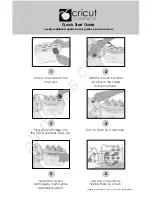
GB
12
Operation
than in other lead-acid batteries. If you use the
wrong charger for a gel battery, a reduced
output or shorter service life can be expected.
– 6 V Regular: Choose this mode for commercial
6-V batteries.
Charge-start button
3
:
Use this button to
switch between the following options:
– Fast charge: fast charging (recommended for
low outdoor temperatures/winter)
– Normal charge: normal charging (normal
speed)
– Start: supplies 75 Ampere briefly to bridge
batteries with a weak charge or flat batteries
for starting the engine
Attention:
The mode can only be terminated by
pulling the mains cable
7
.
Using the jump-start
function
Always make all connections as
described and in the proper order. Otherwise, the
electronic system of the vehicle can be damaged.
If proceeding contrary to the specifications
described, you will act at your own risks and
responsibility.
Attention:
This function is not suitable for
batteries below 45 Ah. For batteries below 45 Ah,
this function may damage the battery. For diesel
vehicles and large-volume gasoline motors, higher
currents than 75 A are needed for starting at times.
Note:
The charger has an analysis program that
protects the battery from damage in particular
for the jump-start function (e.g. sulphatisation, too
strong voltage drops). If the batteries are dis-
charged very strongly or subject to very high stress,
the device will not activate the jump-starter to
protect the battery. During this process, the battery
is already being charged at low currents (charging
is lit). The display then stays at "0". In this case,
jump starting is not possible. This protects the
battery from damage. The battery should be
charged first. The function "Fast Charge" or
"Normal Charge" can be used for this.
If the connection terminals are connected
correctly, the car charger will automatically
choose the proper battery type. You can check
it in the option field "Battery type" and change
it by pushing the Battery-Type button
2
if
necessary.
Now use the Charge-Start button
3
to select
the function "Start". The car charger now
analysis the charge condition of the battery.
The display now shows "0".
Now actuate the vehicle's ignition. A count-
down of 5 seconds now starts in the display
(including a lead time or analysis function of
2 seconds and jump-start function of 3 seconds
at 75 A), when jump-start by the car charger
is necessary (this will be analysed by the car
charger in advance). During this countdown,
your car charger will briefly supply 75 A, in
order to bridge the battery for starting the en-
gine. This will be followed by a break of 180
seconds to protect the battery. Now the cycle
restarts (2 seconds lead or analysis function
and 3 seconds jump-start function at 75 A /
180 seconds pause).
To disconnect the device, remove the connec-
tion terminals first (
6
/
5
) and then pull the
mains cable
7
.
Note:
If the battery is discharged entirely, the
75 A will not be sufficient to start the engine in all
vehicles (e.g. diesel vehicles).
In this case, use the Charge-Start button
3
to select the option "Fast Charge" and then
charge the battery to 60 % (for diesel engines,
the warm-up withdraws energy from the bat-
tery. The 60% must be pending after warm-up).
You can track charging progress at the display by
selecting the option "Battery %" with the digital
display button
1
.
When 60% is reached, repeat the jump-start
function.
Attention:
End the mode by pulling the mains
plug
7
.
Summary of Contents for ULG 12 B3
Page 2: ......
Page 4: ...A 1 2 3 4 6 5 8 7...
Page 16: ...GB 16...
Page 30: ...HU 30...
Page 54: ...CZ 54...
Page 80: ......













































